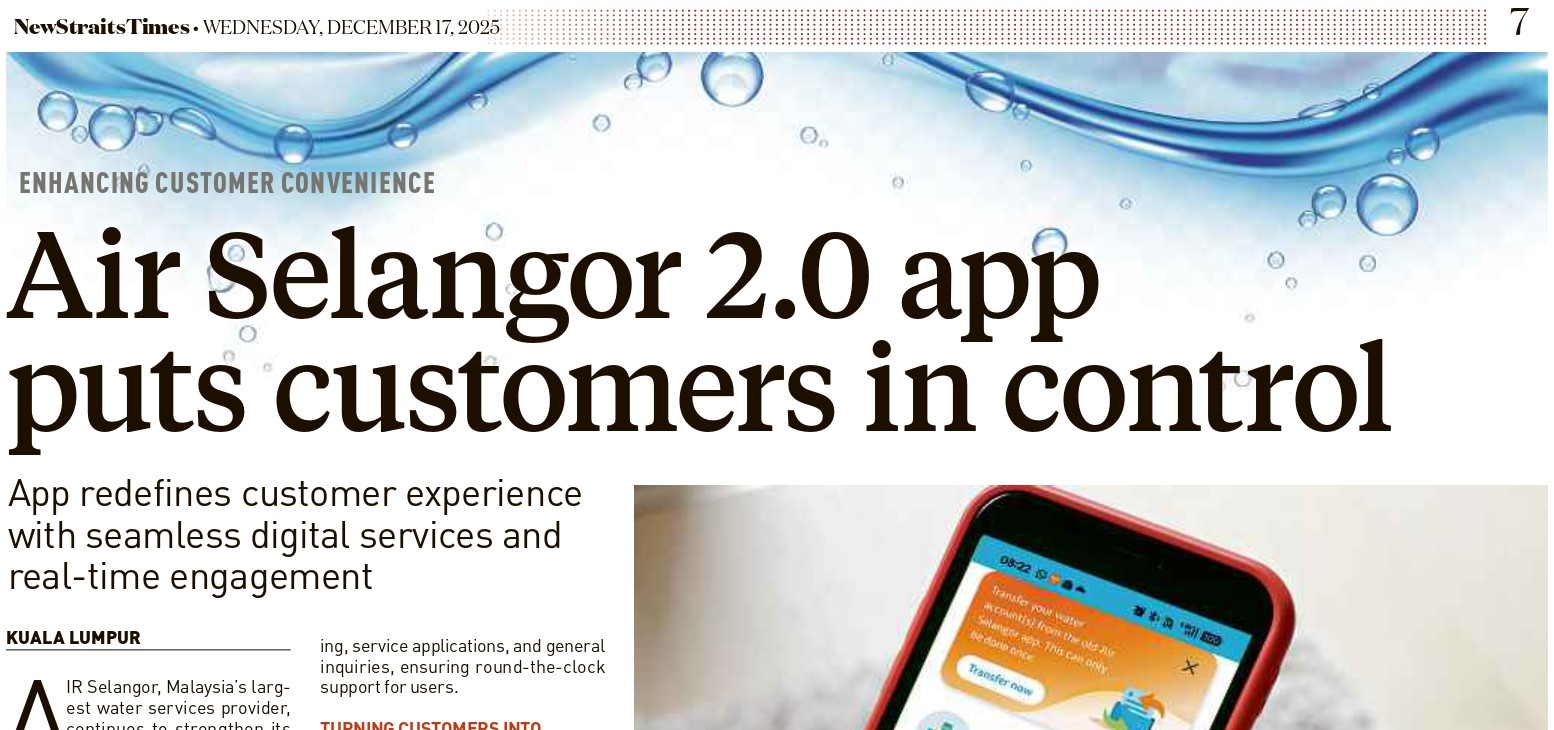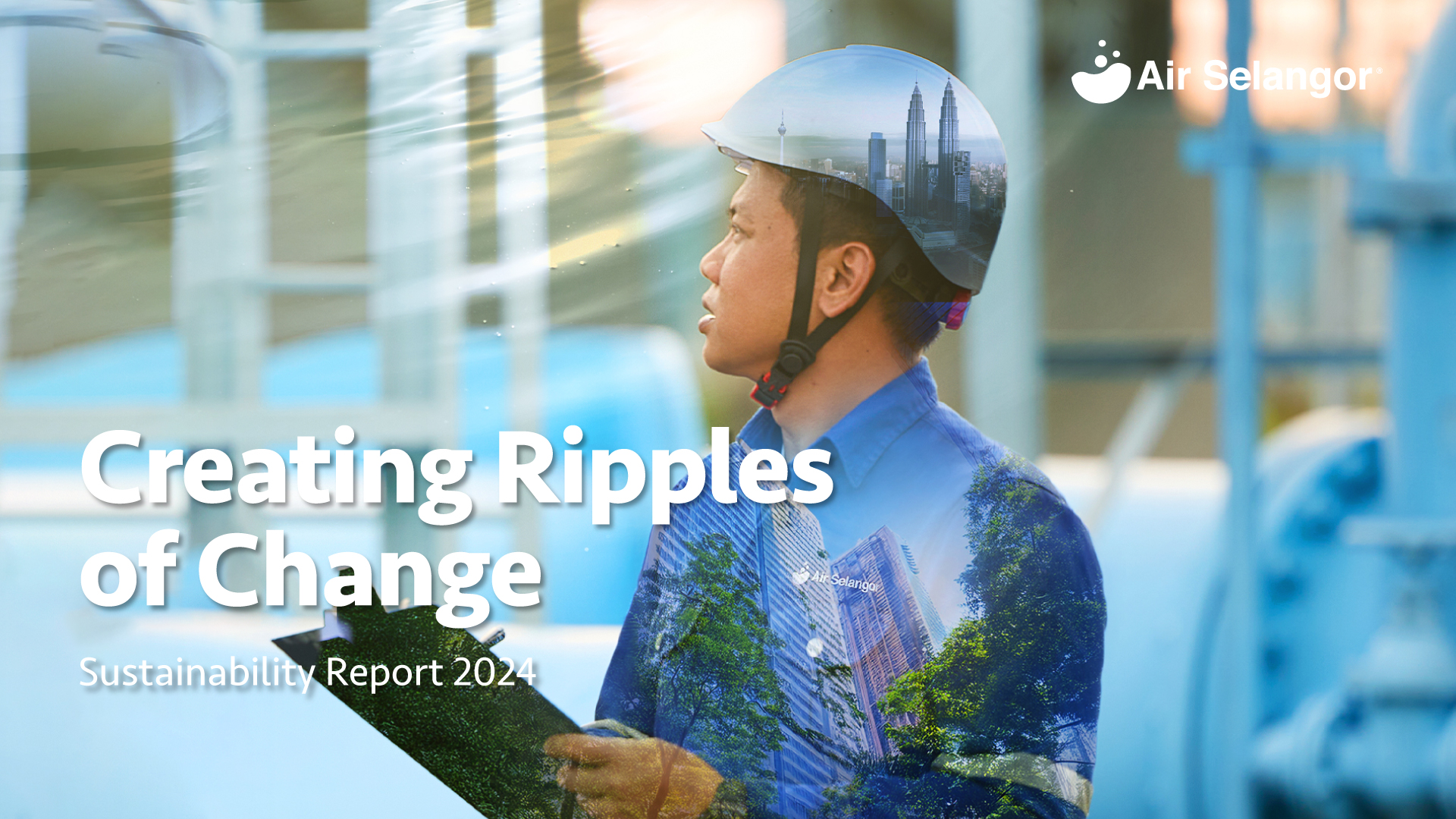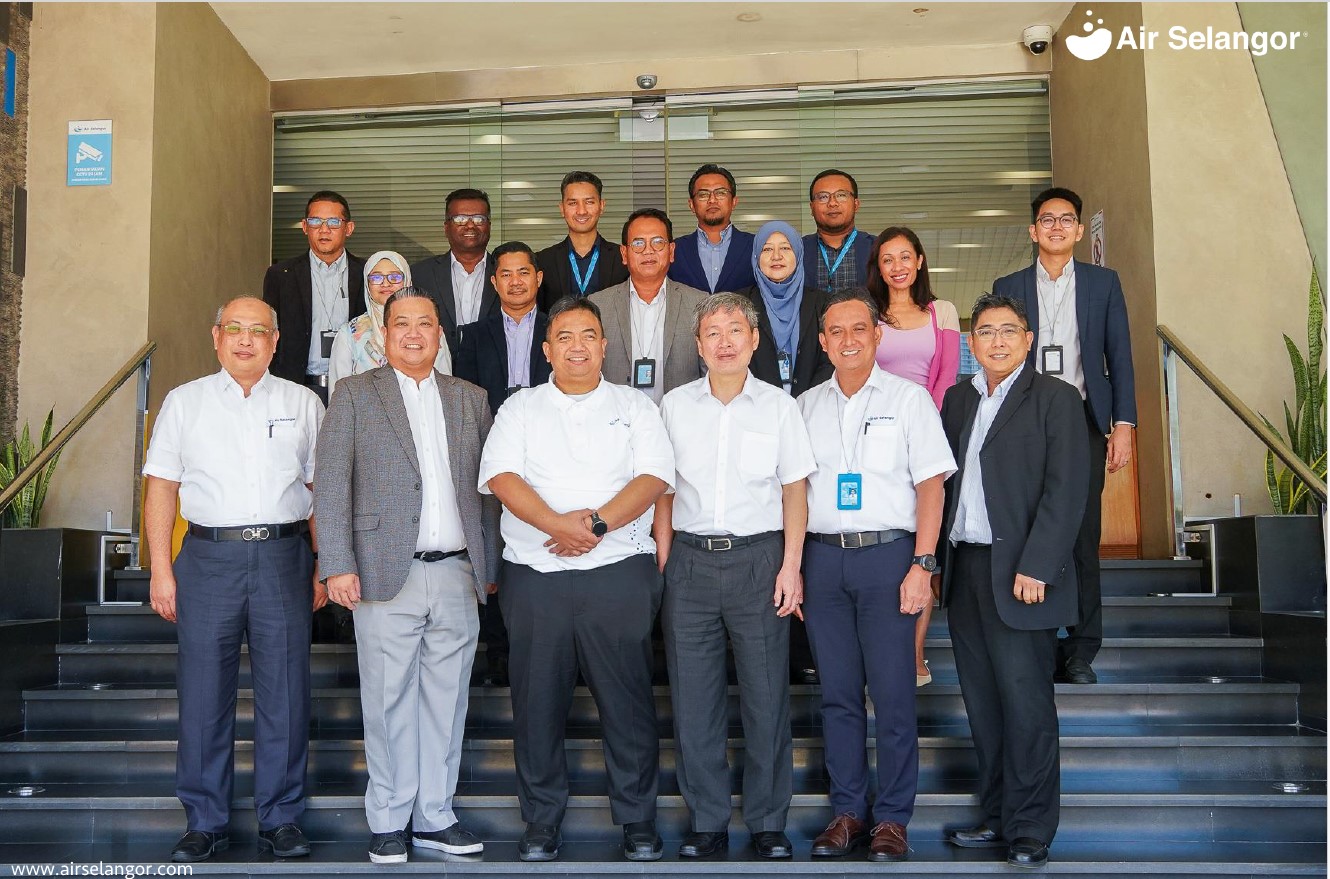Disiarkan pada
Air Selangor’s sustainable water management practices aimed at reducing water loss
In the next six years, Malaysia is projected to lose RM4.05 billion, rising from RM2.32 billion in 2023, as national water loss, or non-revenue water (NRW), is expected to reach 9,037 million litres per day (MLD) (NST Online, Oct 10, 2024).
NRW refers to clean water that has been produced and supplied but is lost somewhere in the water distribution system and is not accounted for. The reasons for water loss vary, ranging from leakages and burst pipes, to unauthorised consumption (theft) and meter inaccuracies.
This is a significant challenge for the country. Deputy Prime Minister and Minister of Energy Transition and Water Transformation Datuk Seri Fadillah Yusof said the national average of NRW is about 35% of total water supply, but there are some states that even breach 50%. This is costing the government about RM2 billion annually in potential revenue, he added (The Edge, Oct 29, 2024).
Rising demand for water as a result of population and economic growth, as well as the recent influx of data centres, has prompted Pengurusan Air Selangor Sdn Bhd (Air Selangor) to call on the government to encourage more private funding to boost investments in the water sector, said its new CEO Adam Saffian Ghazali in an interview with The Edge (The Edge, Nov 6, 2024).
This sentiment is echoed at the national level too, as the federal government plans to open up bids from the private sector, seeking an alternative financing approach to help reduce the cost borne by the government in addressing the issue of high NRW in Malaysia (The Edge, Oct 29, 2024).
Fadillah highlighted that the majority of water-related projects in the country are still funded by the government and there needs to be a balance between public and private funding to ensure the survival and sustainability of the sector (The Edge, Oct 29, 2024).
World Water Loss Day: A concerted effort to reduce NRW
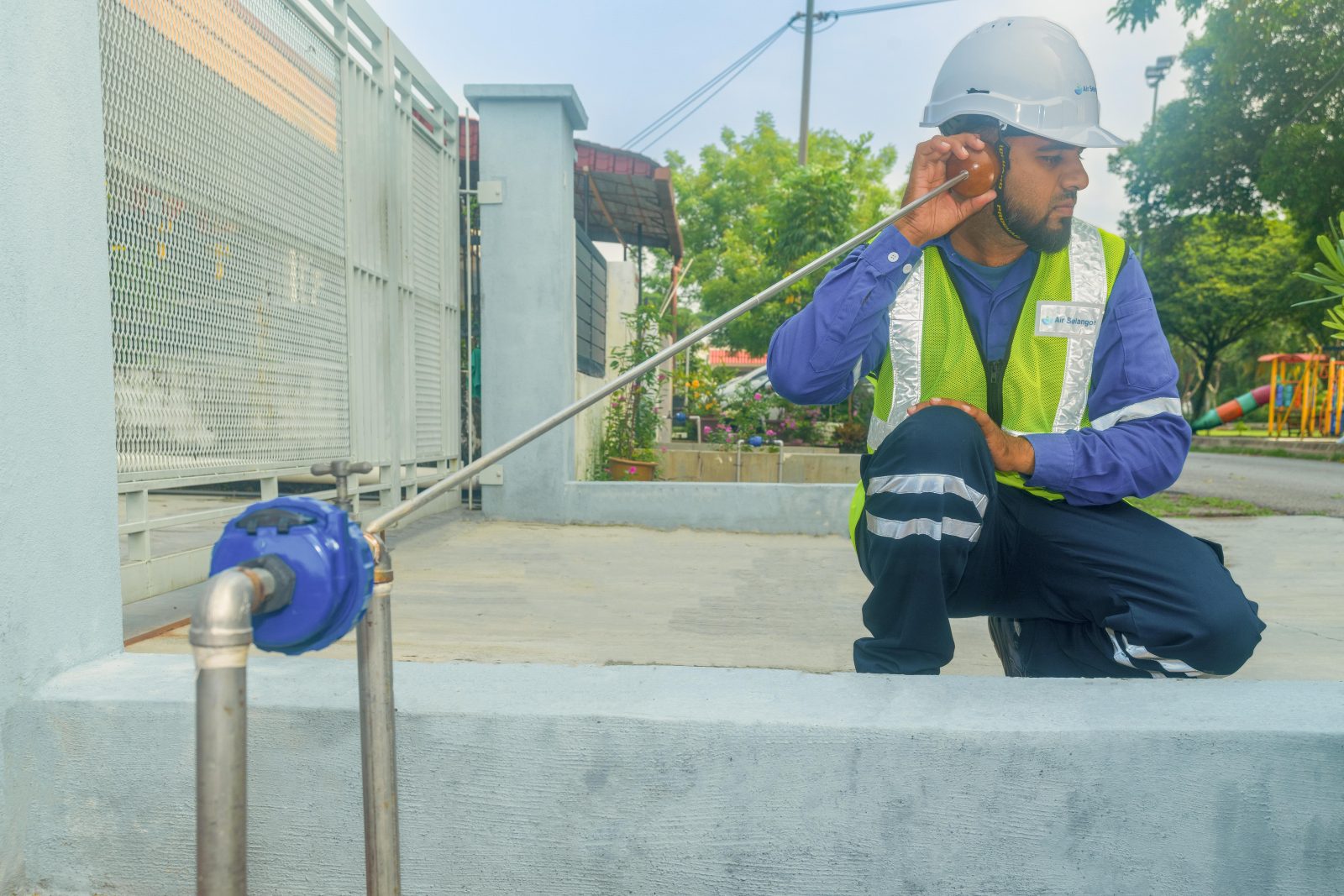
In conjunction with World Water Loss Day on 4 December, Air Selangor has undertaken an array of initiatives to ensure sustainable water management and reduce wasteful water loss. As the largest water services provider in Malaysia, Air Selangor is responsible for the abstraction, treatment and distribution of treated water to 9.62 million consumers in Selangor, Kuala Lumpur and Putrajaya.
Air Selangor has implemented two types of NRW reduction programmes: physical loss and commercial loss reduction. Physical loss is water lost through leakages and burst pipes in the water supply network, while commercial loss is water that is consumed without revenue being collected. This may be due to meter inaccuracies or water theft.
Physical loss reduction strategy
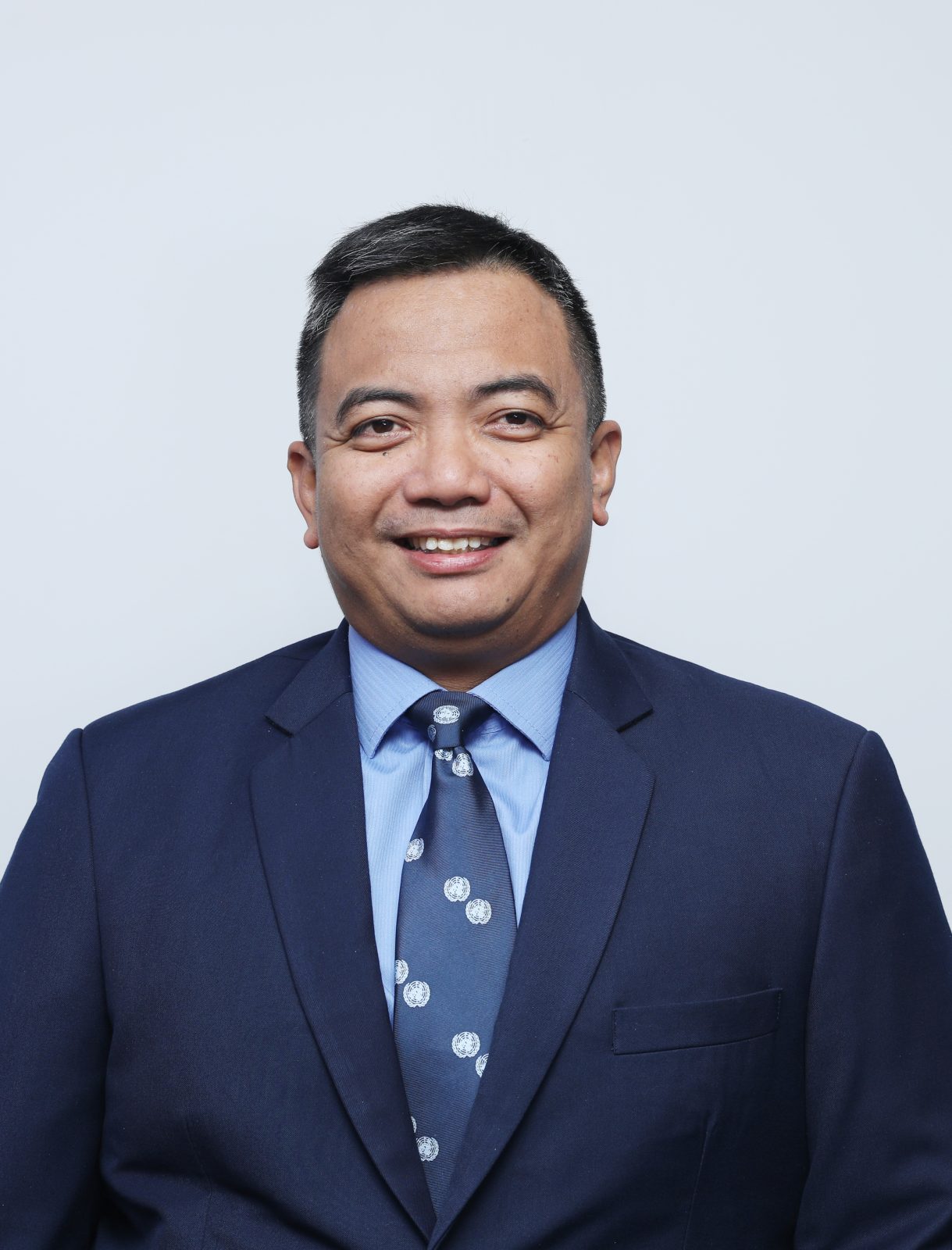
“The effectiveness of these initiatives has led to achieving an average reduction of about 1% yearly…” – Adam Saffian
Air Selangor has an in-house active leak detection team comprising leak inspectors and specialists to continually detect leakages. The company has also implemented the District Metering Zone (DMZ) to carry out pressure management to reduce leakages caused by high pressure.
On top of that, Air Selangor continues to enhance existing infrastructure to reduce NRW due to leakages in ageing pipelines, alongside investments to ensure the stability and consistency of water supply levels. This is achieved through the pipe replacement programme, which includes doubling pipe replacement efforts from 150km to 300km a year starting from 2024, and 400km from 2034 onwards. In order to accelerate the NRW reduction to save operating cost, Air Selangor is planning to outsource the NRW Reduction Initiatives via Performance Based Contract. This approach aims to utilise the private sector financial strength and technical expertise, with Air Selangor sharing the savings with contractors without committing upfront investment.
“A reduction in commercial loss, which includes all types of inaccuracies associated with customer metering and unauthorised consumption, is principally achieved through measures to reduce meter under-registration errors from meter replacement and enforcement of illegal connections,” says Adam Saffian, adding that the company is also embarking on a mission to replace faulty meters while addressing illegal tapping.
“The effectiveness of these initiatives has led to achieving an average reduction of about 1% yearly, which translates into significant daily water savings of about 33 MLD, benefiting around 125,000 consumers daily.”
Reducing NRW is key to sustainable and efficient water distribution management. This has been proven by the encouraging reduction in NRW, of 5.4% from 2017 to 2023. In 2023, Air Selangor achieved an NRW reduction of 27.8%, surpassing the National Water Services Commission’s (SPAN) NRW revised matching grant target of 28.5%.
There has also been a reduction in burst pipes. Air Selangor achieved a Pipe Burst Index of 4.18 bursts per 100km per year of pipeline. This was an improvement from 5.35 bursts per 100km per year in 2022.
Getting the public involved in water reporting
The biggest challenge is the awareness of NRW. But now, the public can play a role as well in reducing NRW, such as participating in the company’s leak reporting campaign.
“This campaign encourages active public participation and awareness of types of leakages and to promptly report the leakages.
“This campaign aids us in our commitment towards ensuring sustainable and efficient water distribution management for our customers,” says Adam Saffian, adding that the campaign yielded promising results, with over 34,800 reported leaks repaired from January to October 2024.
Statistics reveal that only 40% of leaks are detected by Air Selangor through public reports. Through the ‘Report Leaks’ feature in the Air Selangor app, customers can easily report pipe leaks, burst pipes, meter leaks or illegal pipe installations.
The public can also visit Air Selangor’s website at https://www.airselangor.com/whats-happening/campaigns/reportleakscampaign?lang=en for more information.
Article Published in The Edge on 30 December 2024.

